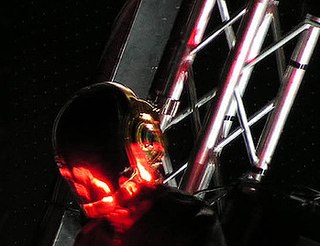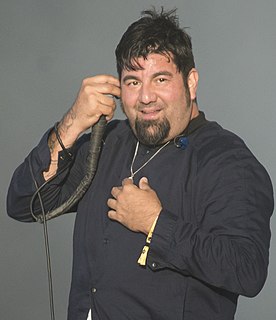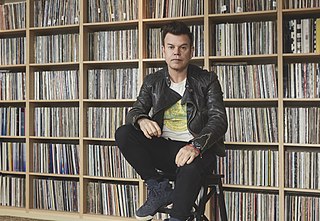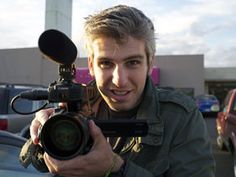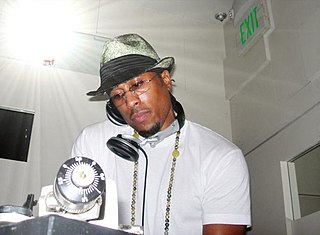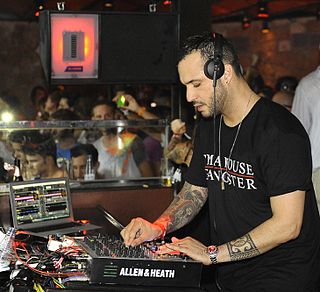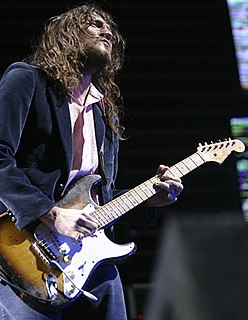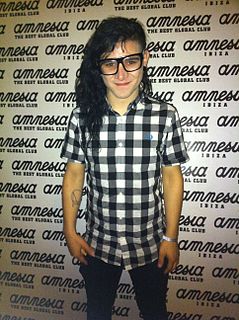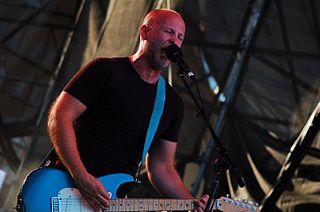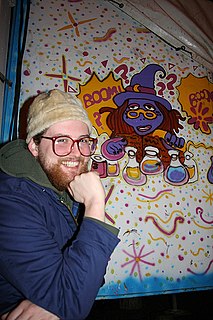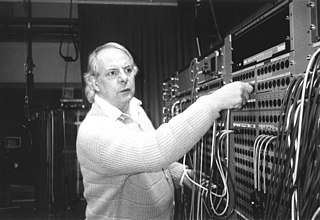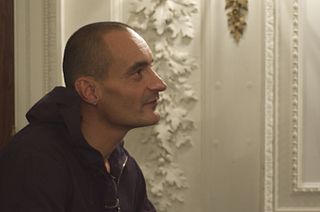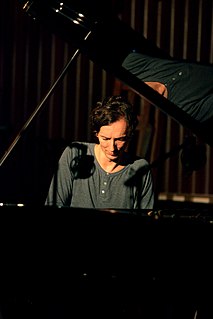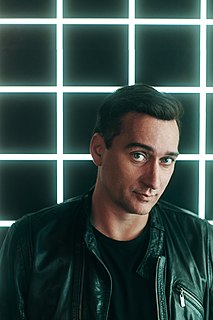Top 877 Electronic Quotes & Sayings
Explore popular Electronic quotes.
Last updated on April 14, 2025.
It's very strange how electronic music formatted itself and forgot that its roots are about the surprise, freedom, and the acceptance of every race, gender, and style of music into this big party. Instead, it started to become this electronic lifestyle which also involved the glorification of technology.
A human moment is a term I invented to distinguish in-person communication from electronic. Human moments are exponentially more powerful than electronic ones. I mean face-to-face, in-person contact and communication. I have identified several modern paradoxes and the first is that, for various reasons, we have grown electronically superconnected but we have simultaneously grown emotionally disconnected from each other.
America and Europe are getting closer to each other. In the U.S. you've always had hip - hop, the blues, soul, and rock. For the last decade, there has always been a lot of electronic music in Europe. When I was just at Coachella, I noticed how the music they play there has become electronic, techno, deep house, more European - so I think it's more similar than before.
For me, the most painful thing is the thought of shelves without books. This is the problem with the digital thing. I do not want to see it on electronic. I do not want to see all of those indices on Kindle. I don't want this physical object to disappear, because when it's there and it's present, it's continually suggesting new relationships in a way that an electronic index couldn't.
For me, the worst set is always when something happens to your equipment. Or back in the days your records wouldn't arrive and you couldn't perform in front of people. The best for me was performing for the Love Parade. That was kind of a blessing. I was never respected as an electronic artist. I was very big as a hip-hop DJ in my home town and in Germany. And then becoming an electronic artist, it was very hard for me to fight my way up. It still is, to be honest. I can still watch the Love Parade on YouTube, and I still put my hand over my head.
Touch-screen voting machines absolutely cannot be relied upon. Our recommendation was optiscan ballots - where you actually have custody of the actual ballots after the ballots have been passed through the computer. That's the most reliable system to use. And people should not use the electronic voting machines. Even electronic voting machines with paper trails can be manipulated.
The papers that flourish will be papers that serve a national audience. Papers that have figured out how to make the transition to the electronic platform that aren't simply providing a duplicate experience of the words on paper experience, but are doing something that arises organically from the new electronic medium. It's really just a matter of finding the right platforms for the way people want to read newspapers. I mean, maybe it will be the iPhone. But one way or another, newspapers on paper are just not really going to exist to any significant degree within a decade.
People always focus on people like me who use synthesizers, right, which are explicitly electronic and therefore obvious. "Ah, yes, that's electronic music." But they don't realize that so is the concept of actually taking a piece of extant music and literally re-collaging it, taking chunks out and changing the dynamics radically and creating new rhythmic structures with echo and all that. That's real electronic music, as far as I'm concerned.
I'm trying to fly the flag for the days of electronic music where people who are making it are also building the gear because that was what was happening in the very early days of electronic music. And that spirit is one of the things that really appeals to me about electronic music so I'm putting this forward as a way to keep that.
I think that one of the challenges for a parent and myself as a parent is that we live in a very electronic media age. That's obvious to everyone. And I'm not opposed to time on computers or time with television or time with any other electronic media but I think that quiet, thoughtful interaction between one's self, your mind and words is an irreplacable thing.
With the violin, for example, one understands culturally that the sound comes from the instrument that can be seen. With electronic music, it is not the same at all. That's why it seemed so important to me, from the beginning of my career, to invent a grammar, a visual vocabulary adapted to electronic music.
I had invented my own system, my own way of making electronic music at the San Francisco Tape Music Centre, and I was using what is now referred to as a classical electronic music studio, consisting of tube oscillators and patch bays. There were no mixers or synthesizers. So I managed to figure out how to make the oscillators sing. I used a tape delay system using two tape recorders and stringing the tape between the two tape machines and being able to configure the tracks coming back in different ways.
From that night on, the electron-up to that time largely the plaything of the scientist-had clearly entered the field as a potent agent in the supplying of man's commercial and industrial needs... The electronic amplifier tube now underlies the whole art of communications, and this in turn is at least in part what has made possible its application to a dozen other arts. It was a great day for both science and industry when they became wedded through the development of the electronic amplifier tube.
The place of electronic music, culturally and socially, is today completely different - it is now everywhere, and it has been totally accepted. Consequently, there is now a younger generation that is more focused on making great electronic music, good parties, and having fun, where there is not any more so much need for cultural and ideological statements in electronic music itself.
Our intention is to develop more subtlety in contemporary electronic sounds. We don't like nostalgic projects. We have disparate interests and many philosophical concerns. In the past 10 years, I have realized music in the classical tradition - I have composed for strings, brass, and electronic, and alp-horn!
In a culture of electronic violence, images that once caused us to empathize with the pain and trauma of another human being, excite a momentary adrenaline rush. To be numb to another's pain - to be acculturated to violence - is one of the worst consequences our technological advances. That indifference transfers from the screen, TV, film, Internet, and electronic games to our everyday lives.
If the human race develops an electronic nervous system, outside the bodies of individual people, thus giving us all one mind and one global body, this is almost precisely what has happened in the organization of cells which compose our own bodies. We have already done it. [...] If all this ends with the human race leaving no more trace of itself in the universe than a system of electronic patterns, why should that trouble us? For that is exactly what we are now!
I think a lot of electronic musicians are drawn to starting with texture because the whole reason we're working with electronics is to try to create new sounds or sounds that cannot be created acoustically. When you're doing that, it's nice to be able to just create a different palette for every single song. I feel like a lot of electronic music sounds like...Each album sounds like a compilation more than it does a band.
People are more likely to search for specific books in which they are actively interested and that justify all of that effort of reading them. Electronic images and sounds, however, thrust themselves into people's environments, and the messages are received with little effort. In a sense, people must go after print messages, but electronic messages reach out and touch people. People will expose themselves to information in electronic media that they would never bother to read about in a book.
On the information technology side, health care is still behind other industries. There needs to be a real push to create better electronic health records, more inter-operability amongst various types of electronic systems and cybersecurity is becoming a huge deal in in health care. Health care records are highly sought after by virtue of the fact that not only do you have somebody's person financial information, you also have their person medical information.
In some ways it's hard to see electronic music as a genre because the word "electronic" just refers to how it's made. Hip-hop is electronic music. Most reggae is electronic. Pop is electronic. House music, techno, all these sorts of ostensibly disparate genres are sort of being created with the same equipment.
One of the many things I love about bound books is their sheer physicality. Electronic books live out of sight and out of mind. But printed books have body, presence. Sure, sometimes they'll elude you by hiding in improbable places... But at other times they'll confront you, and you'll literally stumble over some tomes you hadn't thought about in weeks or years. I often seek electronic books, but they never come after me. They may make me feel, but I can't feel them. They are all soul with no flesh, no texture, and no weight. They can get in your head but can't whack you upside it.
